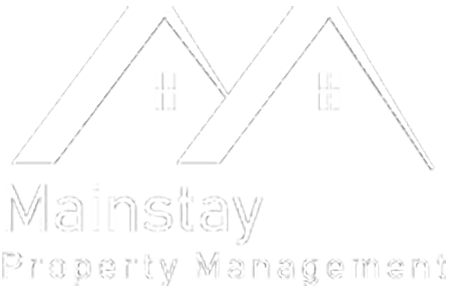Navigating the world of commercial real estate loans can be a challenging yet exciting journey, especially for first-time real estate investors interested in purchasing a multifamily property.

Understanding the basics of commercial loans for multifamily property will not only help you make informed decisions but also set the foundation for your success in the rental property market.
What are Commercial Real Estate Loans?
Commercial real estate loans vary from your typical residential mortgage, both in their structure and purpose.
Designed specifically for purchasing or renovating commercial properties, these loans are a key tool for investors like you who are looking to dive into the multifamily property market.
Understanding their nuances will empower you to navigate this complex financial landscape more effectively.
Note: This is for informational purposes only. Every financial situation is different and you should always seek advice from a qualified professional.
The Role of Multifamily Properties in Commercial Lending
Multifamily properties, which include apartment buildings, condominiums, and housing with five or more units, can be a goldmine in commercial real estate.
They’re popular among investors in Maryland for their potential to generate steady rental income and appreciate in value over time.
As a real estate investor, focusing on multifamily properties could be your smartest move toward a stable financial future.
Understanding Multifamily Properties
At its core, a multifamily property is a residential building designed to house several different families in separate housing units. The beauty of these properties lies in their diversity – ranging from smaller duplexes to larger apartment complexes.
Multifamily properties are often seen as a safer investment compared to other commercial properties due to their consistent demand.
As people always need a place to live, your investment in these properties fulfills a fundamental need, making it a relatively stable choice.
In fact, now is the first time in many years that it is cheaper to rent a home than buy one. This is excellent news for landlords and real estate investors.
Multifamily Property Eligibility for Commercial Loans
In the commercial loan landscape, not all multifamily properties are treated equally. Eligibility often hinges on the property’s size, condition, and income-generating potential.
A multifamily property must have at least five units to be eligible for a commercial loan.
When it comes to getting a commercial loan, lenders look at a range of criteria. These include the value and condition of the property, your credit score, and financial stability.
The lender wants to make sure that the property will be standing for longer than the length of the loan and that it is profitable. Some will even require the property to have 90% occupancy for at least 90 days before underwriting takes place.
Types of Commercial Loans for Multifamily Properties
There are multiple commercial loans for multifamily properties available. Finding the one that meets your financial and investment goals can feel overwhelming.
We’ve broken down each commercial loan and have highlighted their benefits for real estate investors.
Traditional Conventional Mortgage Loans
Traditional commercial mortgages are what most people think of when considering property loans. They typically come with fixed or variable interest rates and have terms that can range from five to thirty years.
The predictability of payment schedules is a major advantage of traditional loans. However, they also tend to require substantial down payments of at least 20% and have strict credit requirements. Generally, you must have a credit score of at least 650 to qualify.
Government-Backed Loans
FHA loans, insured by the Federal Housing Administration, are designed to help lower the barriers to property investment. They are particularly appealing if you’re a first-time investor, offering lower down payments and more lenient credit requirements than traditional loans.
The accessibility of FHA loans makes them an excellent starting point for new investors. However, be mindful of their limitations, including caps on loan amounts and stringent property standards that must be met.
Some FHA loans may require the borrower to live in one of the units in the property. This can be a strong deterrent for some investors.
Loans backed by Fannie Mae and Freddie Mac, government-sponsored enterprises, are another viable option. These loans are tailored for multifamily properties and are known for their favorable terms and higher loan limits.
One of the biggest perks of these loans is their flexibility, which can be a major bonus for a new investor. However, their underwriting standards are quite rigorous, so it’s important to have your financial ducks in a row before applying.
Portfolio Loans for Multifamily Property
Portfolio loans are unique because they are held by the lender’s own investment portfolio and don’t have to adhere to external standards. This flexibility can be particularly beneficial if your financial situation doesn’t fit the typical mold.
These loans are a great option if you’re looking at a property that doesn’t meet traditional lending criteria, offering a level of flexibility that can be crucial for certain investment scenarios.
Commercial Mortgage-Backed Securities (CMBS) Loans
CMBS loans are a bit more complex.
They involve pooling various commercial mortgages, including those for multifamily properties, and selling them as securities to investors. This process creates a diverse risk profile and unique investment opportunities.
One of the main advantages of CMBS loans is their typically lower interest rates. Their terms are usually between five and ten years.
However, their complexity and the prepayment penalties, where you can’t repay the loan early, are factors to consider carefully.
Eligibility Requirements for Borrowers
Not only does your multifamily property have to meet eligibility requirements, but borrowers do too.
Credit Score and Financial History

A solid credit score and a stable financial history are essential for securing a commercial loan. Investors should have their finances in order, showcasing their reliability and investment potential to lenders.
Down Payment and Equity Requirements
Typically, commercial loans require larger down payments than residential loans, often around 20-30%. This means you need to have substantial capital upfront to secure your investment.
Debt Service Coverage Ratio (DSCR)
DSCR is a key metric used by lenders to assess the viability of your investment. It measures the cash flow of the property against the loan payments. A ratio above 1.25 is usually seen as favorable.
To calculate DSCR, divide the Net Operating Income by the Total Debt Service and multiply by 100.
Acquire a Multifamily Property for Your Real Estate Portfolio
Understanding the basics of commercial loans for multifamily properties is a crucial step in your journey as a real estate investor. From assessing different types of loans to understanding eligibility requirements, each step is pivotal in making a well-informed investment decision.
The market for multifamily properties remains robust, offering promising opportunities for new investors like you. With the right approach and understanding of commercial loans, you’re well on your way to making a successful foray into the world of real estate investment.
Once you’ve secured your commercial loan and acquired your multifamily property, trust Mainstay Property Management to take care of it.
Our professional Silver Spring real estate team will maintain the property and manage tenant acquisition, rent collection, and communication, while also coordinating repairs.
You’ve done the hard part of acquiring the property and learning about commercial loans; let us do the rest.
If you enjoyed this article, make sure to read Maximizing Property Investments Through 1031 Exchanges in Maryland, next!

